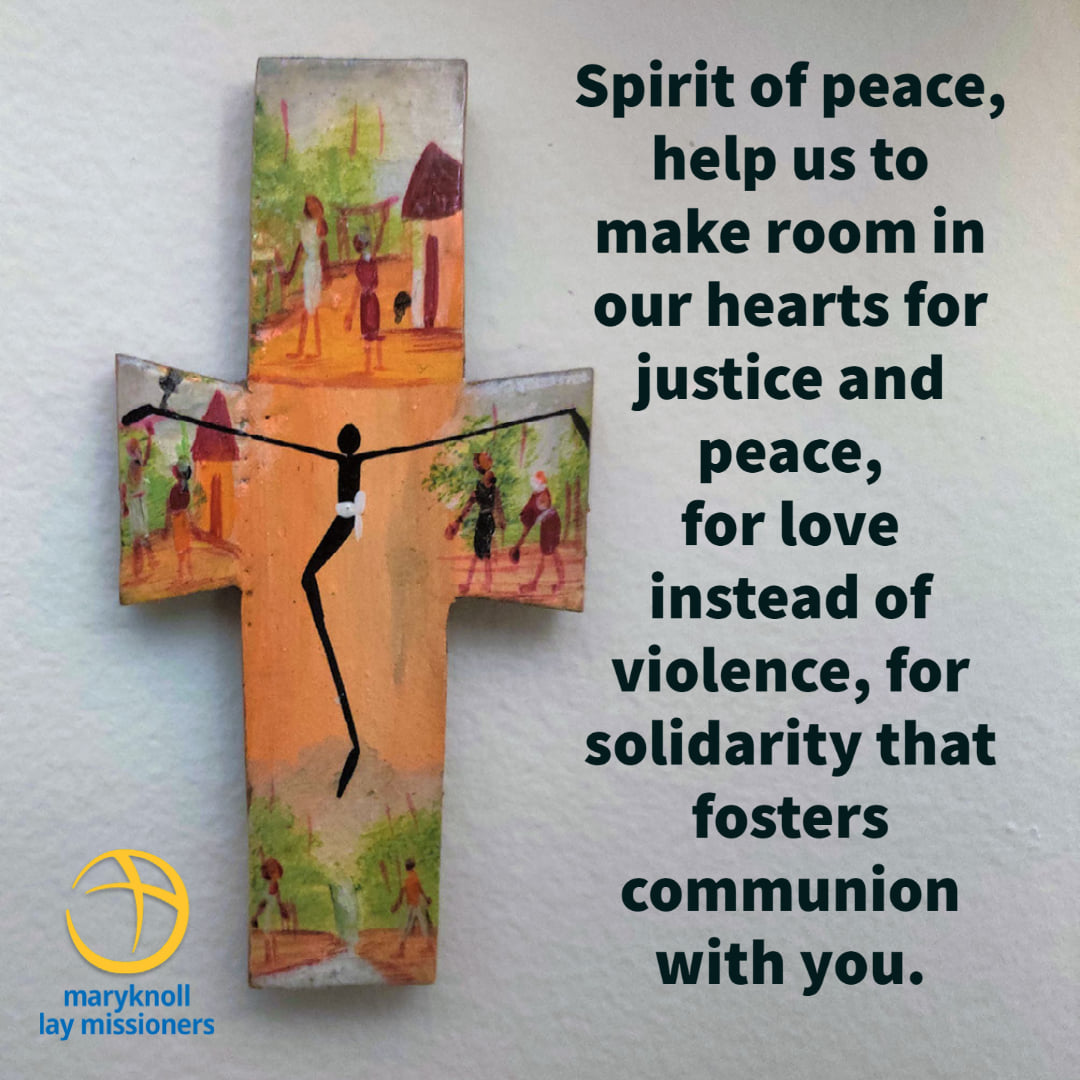
The situation in Haiti this week brought me back to the first time I visited Haiti. It was a solidarity immersion experience, which led us into numerous challenging situations. During an evening reflection at the end of our visit, a companion shared with exasperation, “How does a country get to this point?” Other questions followed. How does a country lose its infrastructure to the point where there essentially is nothing for its people? What does it mean to love in a situation like this; where and how does one even begin?
We recognized just how complex solidarity felt at that moment. Moreover, it felt like our small efforts would not amount to much.
These are the kinds of questions that often paralyze us and prevent us from engaging in the work of justice at all! What difference can I make? The problems are too complex; there are too many obstacles to making any kind of difference; and there is not enough time to handle it all.
And yet Jesus keeps telling us, “Whatever you do to one of these least brothers and sisters of mine, you do to me” (Mt 25:40). The call keeps coming to go to the “thin places” of life where we will come to know Christ, and in turn know each other and ourselves more deeply. Ignoring it will not help. But how did Jesus do it?
Scripture tells us a little about how Jesus dealt with all the needs around him. To me, it sounds quite a bit like solidarity.
First, Jesus observed. Through the lens of love, he saw into the heart of each one, reminding one of her goodness, healing another of his wounds, inviting all to “come and see.” He saw the unjust behaviors and realities that contributed to brokenness and division as opposed to community and wholeness.
Jesus invites us to open our eyes and ears that we too might keenly observe and listen! This deep seeing and listening is the starting point of solidarity, for doing so forces us to remove blinders and takes us out of our cocoons and comfort zones. Solidarity awakens us to the fact that there is much out there that we don’t fully know about or understand, much that we often choose not to see. When I watch and listen to the news about Haiti, what do I see?
Second, Jesus prayed. He took time apart from others, sought God and made time for God. As I imagine it did for Jesus, prayer helps us to hold all the brokenness, suffering and complexity of the world. Prayer brings us in touch with God’s solidarity with us. Knowing we are not alone, we discover the courage to love. God also helps us to see how capable we are of love, even in the daunting and terrifying moments. Love is not so much what God simply expects of us; it is the gift and blessing that God really desires for us. As I hold the people of Haiti in my prayer, what is God showing me about love in this situation? To what is God inviting me?
Third, Jesus took action. He met people where they were. He touched them, listened to them, walked with them, ate with them, prayed with them. As modeled by Jesus, solidarity requires this active step toward relationship — to simply become available, to listen to each other’s story, to look another in the eye, to give of ourselves, to become vulnerable enough to be adjusted and readjusted … and in these experiences, to allow our God to show up, hold us and gently guide us into a new way of relating where we can welcome and receive each person and the moment shared as gift. How might I enter into a relationship of solidarity with our Haitian sisters and brothers?
There is an old saying in Haiti that everything is broken except the spirit of the people. In as much as this may appear to be true, injustice and violence can indeed break one’s spirit if one is constantly beaten down or left feeling alone. Jesus invites us into a profound solidarity with God and each other for a reason. At some time, each one of us needs to be reminded that we are not forgotten nor alone. We need to be reminded about who we are and whose we are, that we come from love and are made to love.
Christians believe that God still loved us so much to become one of us, to enter into our story in this world and remind us that we are not alone, that we matter, that we are loved. As we enter the story of another, the profound awareness we gain is that each story — yours and mine — is all part of THE story. We encounter Jesus in one another, he captures our hearts, and slowly, daily, we learn that the experience of the refugee can be understood through the story of the Exodus from Egypt; that the story of the blind man, the Samaritan woman at the well, or the adulterous woman is also the story of the person who has been trafficked, the physically challenged, the migrant, and any other who is alienated or oppressed.
God enters all of these stories, and we discover that God’s response to our humanity is humanity. In each story, God invites us to follow, to love. Such was the profound witness of St. Teresa of Calcutta who could not turn away from the poor, even in her doubt, because God’s command to love spoke so clearly through each story.
In this time of acute crisis, rather than letting the continued brokenness of Haiti overwhelm us, let us commit to learning more about Haiti by entering into the stories and lives of her people. May these stories move our hearts with compassion. May we hold in prayer the brokenness we will encounter and allow our God to move us toward new and deeper ways of expressing our care for and solidarity with our Haitian sisters and brothers.

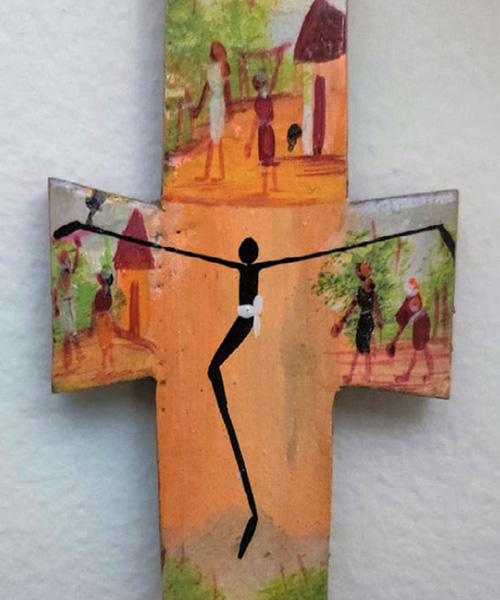

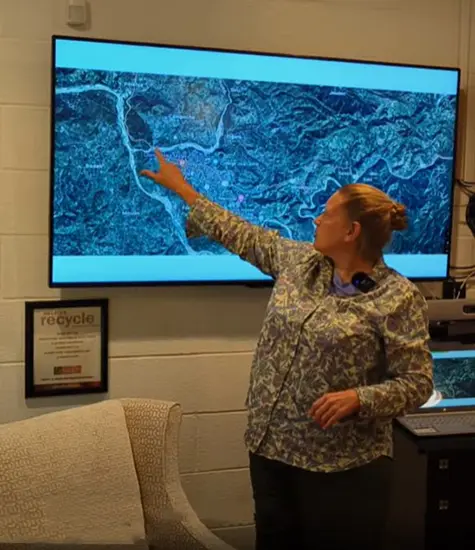
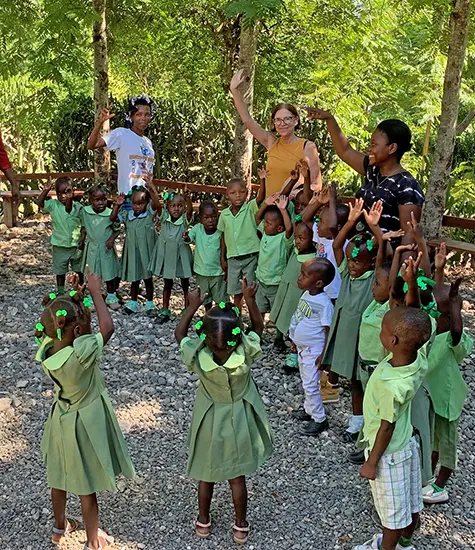
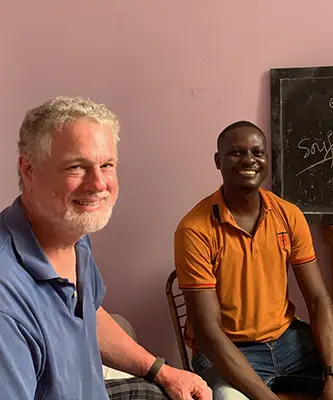




THank you! So true. In times like these we need to turn TOWARD ONE ANOTHER and not away.
Thank you for that poignant and heart-wrenching reflection. You make so many points about what Jesus would do and we should heed that. However, your comment: “How does a country get to this point?” is the one that haunts me.
Thank you for this prayer. I feel more hopeful now. I will share this with friends.